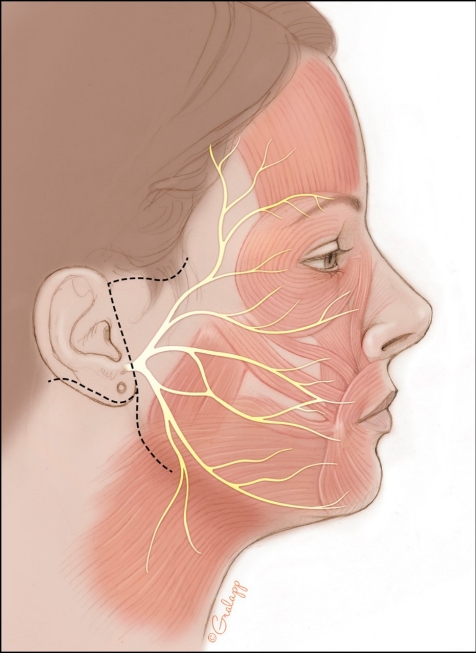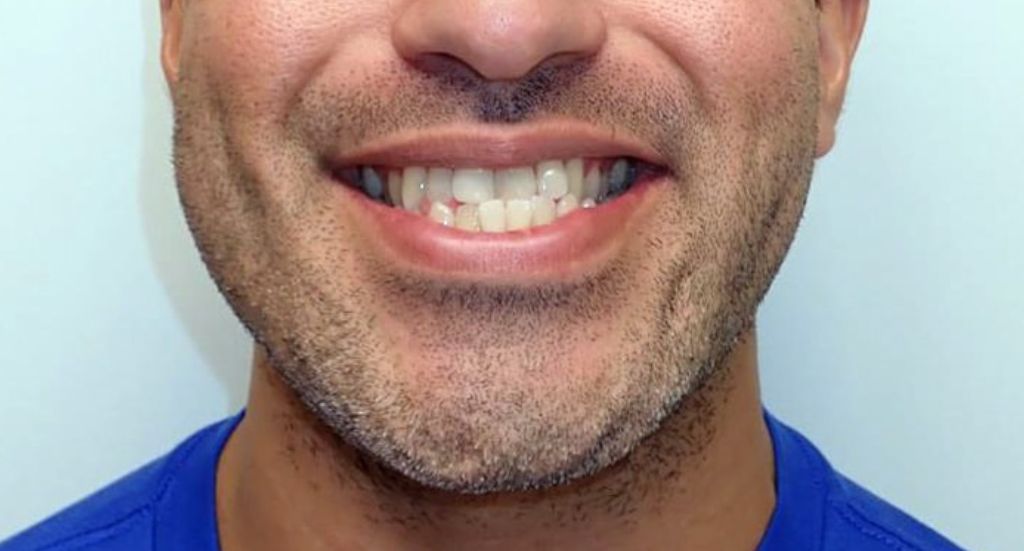Jaw Surgery Does Not Have Good Science Behind It
Jaw surgery, or orthognathic surgery, is often presented as a well-understood, highly refined procedure. Surgeons and clinics describe it as safe, effective, and backed by science. But when you look closely, the foundation behind those scientific claims is deeply flawed. Let’s go over the reasons why “scientific claims” that jaw surgery is safe and effective are more akin to industry-made promotional material than trustworthy, honest science.
On This Page
-
No reliable long-term research — Jaw surgery lacks large, independent studies following patients for 5–20 years, even though many complications only appear over time.
-
Weak scientific methods — Existing studies are observational, lack control groups, and often measure technical outcomes rather than real health and wellbeing.
-
Biased and conflicted research — Most studies are written by surgeons themselves, creating strong incentives to report positive results and ignore negative ones.
-
Patient silence hides harm — Many patients with complications never speak up, inflating reported success rates and leaving harms underrecognized.
-
Complications downplayed — Problems like chronic pain or numbness are often minimized or reframed in medical literature to appear less severe.
-
Missing patient voices — While published research paints surgery as safe, countless online patient stories reveal lasting damage that science fails to capture, indicating the science is incomplete and misleading.
No Large, Independent, Long-Term Studies
A critical pillar of trustworthy medical science is large, independent, long-term research. For jaw surgery, such studies simply do not exist.
-
Large — meaning studies that include enough participants to draw reliable conclusions — are rare.
-
Independent — meaning research done without financial or professional ties to the field — is virtually absent.
-
Long-term — meaning following patients for many years, to track complications that appear slowly — is almost never done.
This is concerning, because many jaw surgery problems emerge not in the first months, but years later, when scar tissue stiffens, joints degenerate, or nerve injuries prove permanent.
NO LONG-TERM RESEARCH
There are no large, independent studies tracking jaw surgery patients over 5, 10, or 20 years — yet many complications only appear long after the first year.
No Experimental Data – And No True Control Groups
True scientific rigor often comes from experimental data — controlled studies designed to test something. In jaw surgery, such data is non-existent. What we have instead are observational reports, very often compiled by the practitioners performing the surgeries. These reports rarely meet the scientific standards needed to evaluate safety and long-term effects.
Equally problematic is the lack of true control groups. Without comparing surgical patients to similar patients who did not have surgery, there’s no way to evaluate life satisfaction claims around jaw surgery.
Biased and Short-Term Research
Most existing studies suffer from serious bias:
Studies are conducted by surgeons or institutions personally invested in jaw surgery’s success, making negative findings less likely to be published.
They focus on short-term outcomes — bite alignment, swelling reduction and early patient satisfaction — rather than what happens five, ten, or twenty years later.
They often measure success by qualitative technical criteria (like whether the jaw is in the planned position) rather than whether the patient’s overall health and wellbeing improve.
One patient described developing issues with swallowing and speech, despite his surgeon recording him as a ‘successful case.’
Involvement by surgeons in the ‘studies’ and the focus on short term outcomes can make jaw surgery appear far more favorable on paper than it is in reality.
Incentivised To Report Success
WHO WRITES THE STUDIES?
Most jaw surgery research is authored by surgeons who perform the procedure themselves — creating a strong incentive to report positive results.
The Highly Specialized Nature of the Field
Jaw surgery is a niche specialty with a very small pool of researchers. In such a tight-knit community:
-
The same individuals often appear as co-authors on multiple studies.
-
Professional and social relationships can make it uncomfortable to publish critical findings.
-
Alternative perspectives from outside the field are rare, limiting the diversity of scientific scrutiny.
In such a small field, there’s less diversity of thought, fewer independent critiques, and greater professional pressure to avoid rocking the boat. As a result, jaw surgery is not truly examined for safety and efficacy like other more common medical procedures.
Why Patients May Not Speak Up
Another hidden factor in the data is patient silence. Many people who have poor outcomes do not report them to their surgeon. Reasons include:
Fear of being dismissed or blamed for their own complications.
A belief that nothing can be done, so there’s no point in speaking up.
Feeling intimidated or emotionally exhausted.
If patients are reluctant to share negative feedback, the official success numbers will be artificially inflated.
Surgeons dismissing patient reports is common and there are many testimonials of this happening:
“I tried to talk to the initial surgeon about how unhappy I was, but as soon as I brought up my first complaint he brushed me off. He seemed to be getting annoyed just by that one complaint, so I was too scared to bring anything else up.”
– jawregret230 on archwired.com
“I stopped going to my surgeon after 6 months due to her complete disregard of my concerns.”
– u/Pretend_Cat1850 on reddit
“I also now have issues with swallowing and my speech is affected. I have told my concerns to the surgeon who has said there is nothing wrong and perhaps I should see a psychologist.”
– Bssogonewrong on jawsurgeryforums.com
“I had double jaw surgery to correct an underbite and crossbite four weeks ago and things aren’t looking too great. I’ve brought up my concerns the last few visits, and so far the surgeon’s been very dismissive.”
– Perlkrys on jawsurgeryforums.com
“So it’s been 10 months now and day by day I feel it’s a FAILED surgery and I still have asymmetrical jaw and a class III bite on the right side. Not to mention all the pains and discomfort I’ve been through. I had some followup appointments with the surgeon and I raised my concerns, but he became very impatient and started refusing to talk to me. He said, as I quote, he did an A+ surgery and there’s nothing wrong.”
-PhoenixHiker on jawsurgeryforums.com
“My jaw joint shouldn’t be in constant state of tension just to keep my teeth near touching at rest. Btw I’m 10 months post op now and my surgeon, who I no longer talk to, thinks it is all in my head. My surgeon despite saying it is all in my head also has said that I signed a piece of paper that said I accepted the risks of surgery.”
– Ben on jawsurgeryforums.com
“I’m so upset/unsatisfied with my jaw surgery. I truly believe I now look worse after his surgery because my upper jaw looks recesses and pushed back. I keep bringing this up to my surgeon but he keeps claiming that everything is fine but I don’t believe him.”
– jawprobs16 on jawsurgeryforums.com
Most Victims Never Speak Up
PATIENT SILENCE SKEWS THE NARRATIVE
Many patients with bad outcomes never tell their surgeon — out of fear, frustration, or feeling nothing can be done — meaning official estimates may be overly optimistic.
Underreported Complications
Even when complications are recorded, they may be minimized or reframed:
-
Chronic numbness might be labeled “sensory alteration.”
-
Severe pain could be downgraded to “mild discomfort.”
-
Long-term jaw joint deterioration may be categorized as a “minor issue” if it does not require immediate revision surgery.
One patient described constant tension in her face after surgery, while her surgeon claimed the surgery was a success and dismissed her complaints as ‘all in her head.’ By downplaying severity or using misleading terminology, the literature can underrepresent the true human cost of poor outcomes. These wording and reporting choices can turn life-altering disabilities into footnotes — and make serious harm seem rare when it’s not.
Why Would Surgeons Underreport Negative Patient Outcomes?
Many negative outcomes from jaw surgery are underreported or minimized. Surgeons may face strong incentives to downplay risks: their livelihood depends on patients choosing surgery, their career and identity are tied to their work, and acknowledging harm can threaten reputation or invite legal liability.
Even when complications are documented, they are often reframed—chronic numbness becomes a “sensory alteration,” severe pain is labeled “mild-to-moderate discomfort,” and long-term TMJ problems are called “occasional sensitivity”. Denial and cognitive bias can also lead surgeons to dismiss or rationalize patient suffering.
The result is a skewed picture: marketing and professional communications highlight success stories, while chronic pain, worsened function and psychological distress are downplayed.
Listening To Patient Stories
The solution is to listen to jaw surgery patient stories. Listening to patients is essential—they have no incentive to misrepresent their suffering and often provide the clearest view of the real risks.
The Missing Voices in the Literature
Search online, and you will find hundreds of detailed accounts from people who describe severe, lasting harm from jaw surgery — chronic pain, worsened function, nerve damage, facial changes they regret, or psychological distress. These voices are almost entirely absent from scientific literature.
“I regret trusting my orthodontist’s recommendation of what was in my opinion an unnecessary orthognathic surgery. Almost two years later and it has very negatively impacted my quality of life because daily tasks such as talk and eating have become very unpleasant. I am also very disappointed over the way I look and have been told by friends I looked much better before. Only do the surgery if it is truly medically necessary.”
– Saramarielopez on realself.com
“My opinion is that this surgery get reserved for only the most severe of cases. Cases where you are in so much pain, can’t function, and have reached rock bottom and have nothing to lose by gambling on this surgery and it’s associated risks.”
– LyraM45 on jawsurgeryforums.com
“It feels like i elected to have a major surgery that wasn’t necessary. like i harmed myself in some way. it’s hard to live with knowing that i trusted my doctors opinions instead of my own intuition”
This surgery has a lot of complications that no one thinks are going to happen to them. In my case I had a non union. It’s been nothing short of traumatizing. It has ruined my life. It’s affecting every area from dating to working.
– u/fatally-femme on reddit
The disconnect is striking: while published studies often portray jaw surgery as highly successful, patient-led discussions on forums, blogs, and social media tell a far more troubling story. The absence of these negative outcomes from research is a red flag that the science is incomplete and potentially misleading.
Published Literature Is Missing Our Voice
Online Stories Tell Another Side
Hundreds of patients share severe negative outcomes online — but these are almost completely absent from the published medical literature.
Bottom Line
Jaw surgery is a major, irreversible procedure. Yet, despite decades of use, the scientific evidence supporting its long-term safety and effectiveness is alarmingly weak. Until independent, long-term, and unbiased research exists, patients should approach this surgery with great caution — and give significant weight to real-world patient experiences due to lack of reliable published studies.


